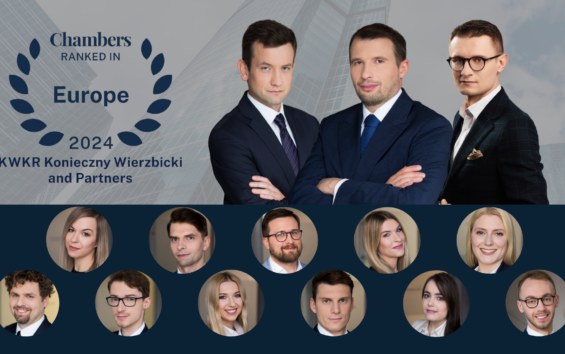In the international legal system, there are two basic models of a capital company’s organizational structure: a monistic model and a dualistic model. So far, we have not had such diverse options in Poland. However, the Polish Companies Act already introduces the freedom to choose a given organizational structure. Therefore, it is worthwhile to take a closer look at these two models and verify which one will work out best in our economic reality.
One entity, multiple functions
The core of the monistic model is a concentration of managerial and supervisory competencies within one body – the Board of Directors. It combines the management board and the supervisory board into one entity that has both managerial, supervisory, and representative powers. So far in Poland, it has been introduced under the virtually unused form of the European Company. However, due to the emergence of the S.J.S.C., its popularity may increase.
In such a system we deal with a clear and strict separation of the ownership sphere (shareholding) from the management and control sphere (board of directors). Dispersed shareholders, individually having little capital contribution in the company, take a passive attitude towards the decision-making sphere. This situation in turn gives rise to the need to fill the decision-making gap. Professional managers are sought who have complete freedom to manage the company’s affairs and determine its goals and strategies.
More freedom and no control?
Choosing a monistic model for a company’s governance structure brings with it many advantages. These include the free flow of information between board members. Another advantage is the flexibility to freely shape the internal organization of the board and to assign specific functions to its members. Another important advantage is the effectiveness of exercising the board’s powers, which is ensured by its uniform character.
However, the adoption of this model raises potential problems in the organizational sphere of the company. Difficulties may result from the lack of separation of control and executive functions. Another reason may be that the board’s functionality is too dependent on the individual characters of managers, especially those at the highest level. Also at risk are the mutual relationships of board members, which can result in a camaraderie dilemma.
Numerous corporate scandals and the financial crisis of 2007-2008 have led to criticism of the excessive powers of the board of directors. The main argument is considered to be that precisely because there is no separate supervisory and controlling body, the monistic system does not guarantee sufficient control over the activities of the Gremio body itself and the executive directors. And this in turn poses a serious threat to the functioning of the whole company.
Does this mean that we should reject the monistic model out of hand? Not really. The aforementioned arguments in favor of such a way of managing a company are still valid. In addition, the model functioning in global corporations may attract foreign investors. And this will certainly facilitate the rapid development of the company.
Separation of management and supervision
The roots of the dualistic system date back to 19th century Germany, where among people involved in commercial companies there arose doubts as to whether the general meeting of shareholders should be accompanied by an additional body that would take over management and control competencies, thus relieving the owners.
A key role in the legal environment of such an assumed dualism is played by concentrated shareholders, most often personified in the form of a strategic shareholder. It has full initiative both in the area of ownership and management and control. The fragmented shareholding found in countries where a monistic system has developed is being replaced by banks, industry investors, state institutions, or the founders themselves, with credit becoming the main source of funds instead of capital markets.
In such an environment, it is much more common to create conglomerates of companies acting in the interest of the entire group (holding). Such an arrangement makes it possible for the majority strategic investor, who holds a significant portion of votes in the company, to decide who will sit on the management and control bodies. It often happens that the owners, wishing to secure their considerable contribution to the company, also want to decide on its development direction and strategy. In such cases, they by themselves (or through their representatives) take on management functions, at the same time appointing persons of their choice to the supervisory body. By doing so, they abolish the borderline between ownership and management, which is so obvious in Anglo-Saxon reality.
Full distance and ineffective cooperation?
Undoubtedly, the main advantage of the classical dualistic model is its essence, i.e. making a functional separation by entrusting different roles to two different parts. The two corporate parts, separated from each other structurally and personally, can fully devote themselves to their bundle of tasks.
Having autonomy in managing the company’s affairs (management board) and in day-to-day supervision (supervisory board) structurally strengthens the parts of the authority and stabilizes their position. This is further served by the system of tenure, which guarantees that the members of the parts will be able to perform their roles freely for a certain period. In turn, the problematic dilemma of camaraderie in monism is significantly less likely to occur in dualism. Therefore, objectivity in the enforcement of control powers is increased in this form.
On the other hand, members of particular parts are simultaneously aware that their actions will be subject to evaluation not only by the owners but also by another part.
A potential drawback of the dual system is the problem of the asymmetry of information between the management board and the supervisory board. In the first place, it is the management board that has access to all information of key importance for the functioning of the company. And if it wanted to increase its decision-making freedom, it could consciously block the flow of this information towards the supervisory body or simply distort its content. This raises the issue of the board exercising its powers of ex-post control.
In this state of affairs, the supervisory board can only supervise the effects of the actions taken by management. This significantly weakens the effectiveness of supervision in the company and strengthens the position of the board of directors. In this case, the actions of the board – not subject to proper substantive evaluation – can easily lead to results that are undesirable for the company.
Certainly, both models can bring benefits as well as limitations. Therefore, when making a choice, it is worth considering which of the above-mentioned advantages of a given system is the most attractive for shareholders, and which of the risks may pose the greatest risk to running the company. We also encourage you to contact us. We will be happy to conduct a full risk analysis and even help you go through all the necessary paperwork so that in the end your company represents itself professionally on the global market.
Do you want to be up-to-date? Subscribe to our newsletter!

